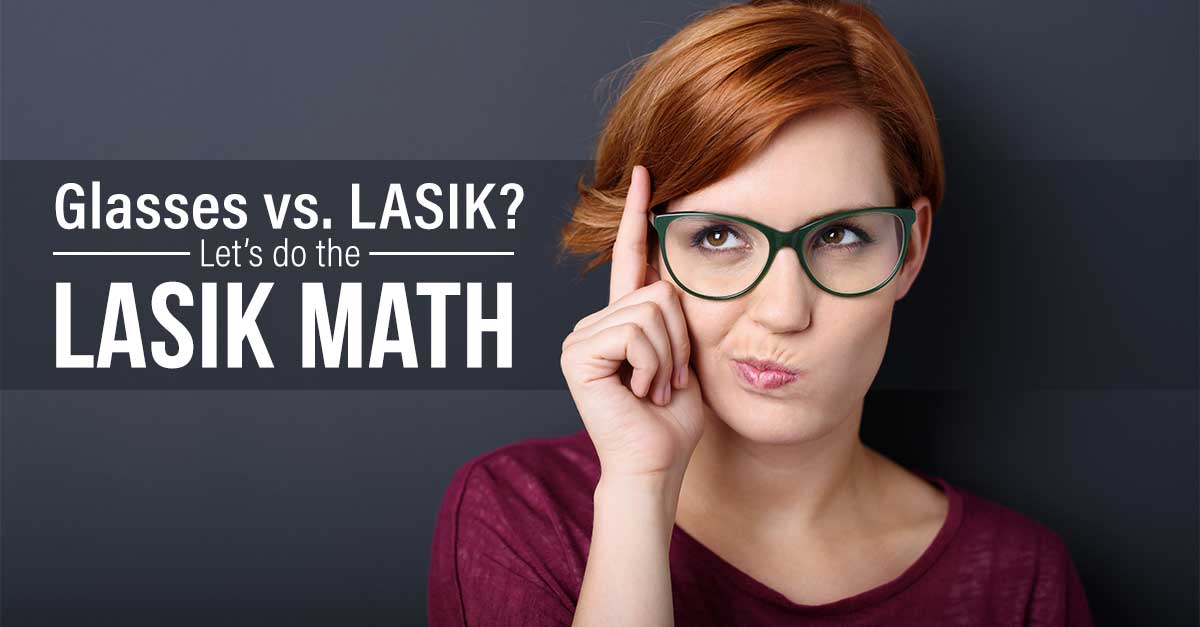Does LASIK Correct Reading Vision?

LASIK can correct nearsightedness, farsightedness, and astigmatism. This may allow you to see better at all distances, including up close. However, LASIK does not necessarily correct age-related problems with reading vision.
Thanks to the experienced physicians and staff at Berkeley Eye Center, choosing the right vision correction option is easier than ever. Read more about your options below.
What Is LASIK?
LASIK (laser-assisted in situ keratomileusis) is a type of refractive surgery that uses a laser to change the shape of your cornea. This can improve your vision and reduce or eliminate your need for glasses or contact lenses.
LASIK is one of the most popular vision correction procedures available today. It is safe, effective, and relatively painless.
During a LASIK procedure, your surgeon will use a laser to create a small flap in your cornea. They will then lift the flap and use the laser to reshape your cornea. Finally, they will replace the flap and allow it to heal.
LASIK is a very precise procedure, and it can be customized to meet your specific vision needs.
What to Expect from LASIK at Berkeley Eye Center
Making the right choice for your LASIK procedure can make all the difference in the world — in both your vision and your life. At Berkeley Eye Center, we know choosing to have LASIK is a huge decision.
Here’s more good news: Our LASIK procedure takes only a few minutes to complete, and patients remain awake and comfortable during the entire procedure. We offer the latest laser technology and techniques by uniquely qualified surgeons who have performed tens of thousands of procedures combined.
Here’s what you can expect from LASIK:
- Short recovery time. Patients can have surgery on a Friday and return to work on Monday thanks to faster laser treatment times, proper pre-op procedures, minimally-invasive laser treatments and a proven regimen of post-op care.
- Quick and comfortable procedure. Using our advanced all-laser iLASIK technique, the actual laser treatment time is 60-seconds or less, with patients reporting little to no discomfort.
- A LASIK provider you can trust. Unlike corporate or discount LASIK providers, Berkeley Eye Center has been helping keep Texans focused for over 60 years. Our tradition of “Eye Care Excellence” was founded on award-winning customer service, experienced surgeons you can trust and being an eye care provider you can count on for ALL of your eye care needs.
While we won’t offer deep discounted pricing, we do offer all of our patients one price for state-of-the-art technology and in-house financing as well as some of the most competitive rates by CareCredit and other organizations.
If You Get LASIK, Will You Still Need Reading Glasses?
Beginning in our 40s and 50s, we begin to notice that our near vision is becoming blurry, making it difficult to see up close. We struggle to focus while reading a menu at a restaurant, reading the newspaper, and even using our mobile phones, so we become dependent on our reading glasses. This natural loss of reading vision is called presbyopia, and eventually affects all of us, even if we never needed corrective lenses before.
Many people who experience presbyopia become frustrated with the hassle of using reading glasses and more interested in refractive surgeries such as LASIK and PRK. While these procedures can correct vision problems such as nearsightedness, farsightedness, and astigmatism, there are reading glasses alternatives available that are specifically designed to help correct near vision, including:
- Raindrop® Corneal Inlay
- KAMRA® Corneal Inlay
So while LASIK does not necessarily correct reading vision, at Berkeley Eye Center, we want to help determine the procedure that is right for you to help you achieve your best vision.
Frequently Asked Questions About LASIK
How long does LASIK last for?
LASIK is a permanent vision correction procedure, but your eyesight may change over time due to the natural aging process. However, the majority of our patients maintain excellent vision for many years after their LASIK procedure.
What is the best age to do LASIK?
The best age to have LASIK is typically when your vision has stabilized — usually in your early twenties or older. Even if you’ve been wearing glasses or contact lenses for years, there’s a chance that your vision could change, so it’s important to wait until it has stabilized before having the procedure.
Do I have a health condition that might rule out this procedure?
Several health conditions may cause you to not qualify for LASIK eye surgery. For example, if you have an autoimmune disease such as rheumatoid arthritis, you may not be a good candidate. Other health conditions that might rule out this procedure include:
– Diabetes
– Glaucoma
– Multiple sclerosis
– HIV/AIDS
Schedule a FREE LASIK Consultation Today
Don’t let blurry vision keep you from seeing the world around you. At Berkeley Eye Center, we offer FREE LASIK consultations to help you determine if this procedure is right for you. Schedule your consultation today! Call our office at (713) 526-1600 or click the button below to schedule online.

